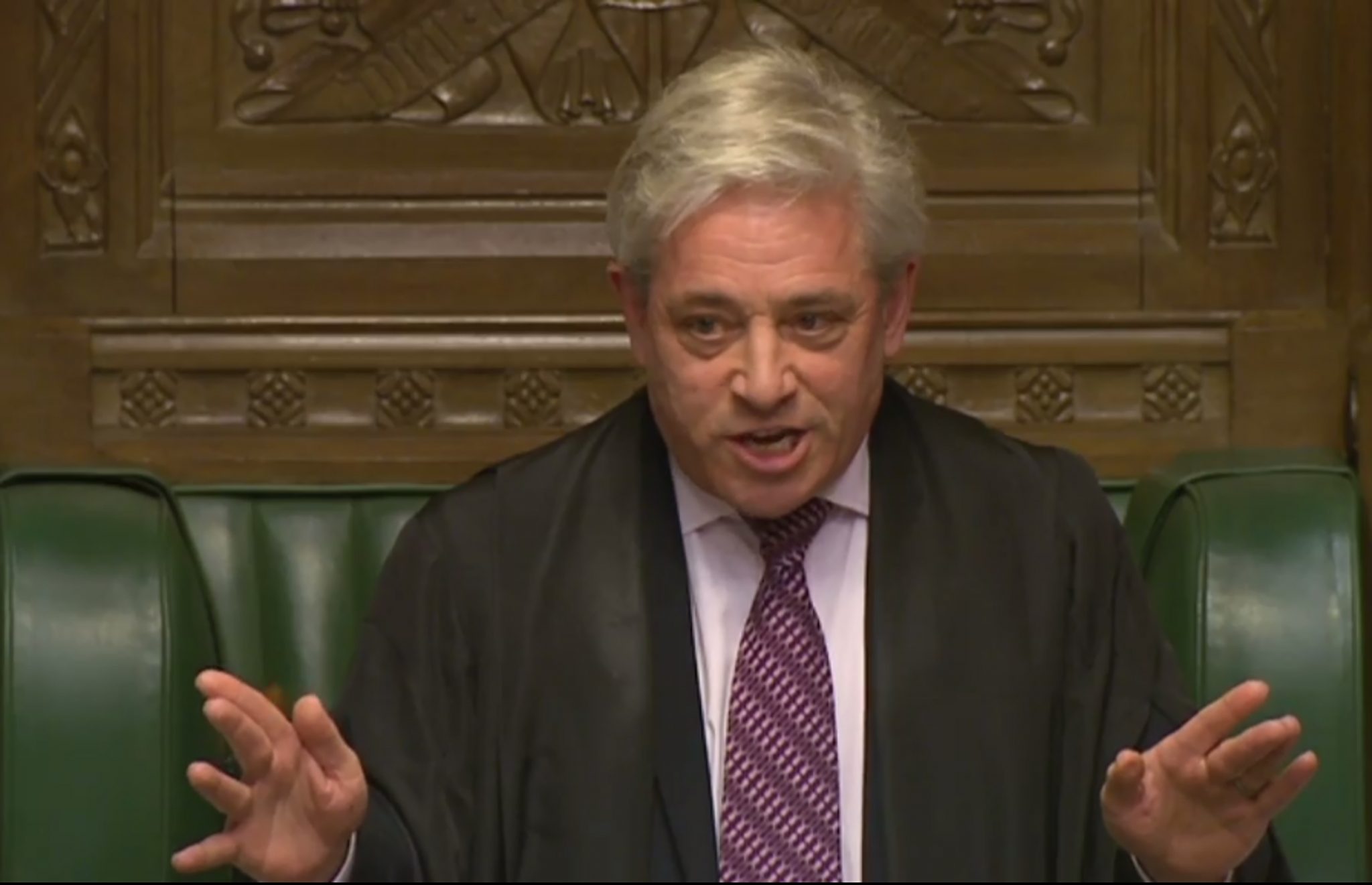
Bercow said he would be opposed to US President Donald Trump addressing the Houses of Parliament during his state visit to the UK. / AFP PHOTO
LONDON, United Kingdom (AFP) — The Speaker of Britain’s House of Commons said Monday he was “strongly opposed” to allowing Donald Trump to address members of parliament during the US president’s state visit later this year.
John Bercow said such a speech was “not an automatic right, it is an earned honour” — and one he would object to following Trump’s ban on refugees and travellers from seven mainly Muslim countries.
“Before the imposition of the migrant ban I would myself have been strongly opposed to an address by President Trump in Westminster Hall,” said Bercow, one of three officials who would have to approve the move.
“After the imposition of the migrant ban by President Trump I am even more strongly opposed.”
Prime Minister Theresa May has come under intense pressure for the invitation for Trump to make a state visit, which she extended while at the White House just hours before he announced his travel ban.
More than 1.8 million people have signed a public petition calling on ministers to cancel the visit, which MPs are due to debate later this month.
Bercow said that decision was above his pay grade.
“However, as far as this place is concerned, I feel very strongly that our opposition to racism and to sexism and our support for equality before the law and an independent judiciary are hugely important considerations in the House of Commons,” he said.
The date and details of the state visit are still being worked out and a spokeswoman for the speaker’s office said the government had not made any request for Trump to address parliament.
But a speech to both Houses of Commons and Lords has been a feature of many previous state visits, including one by Barack Obama in 2011.
Some 163 MPs have signed a parliamentary motion opposing an address by Trump, citing the travel ban and his comments on torture and women.
Bercow’s statement sparked cheers and clapping from the opposition benches.
Earlier, May told MPs that at a summit last week, she had urged her fellow European leaders to “engage patiently and constructively” with the new US administration.
Trump’s criticism of the NATO military alliance and his prediction that the EU could fall apart following Britain’s vote to leave has caused alarm in European capitals.
© Agence France-Presse








